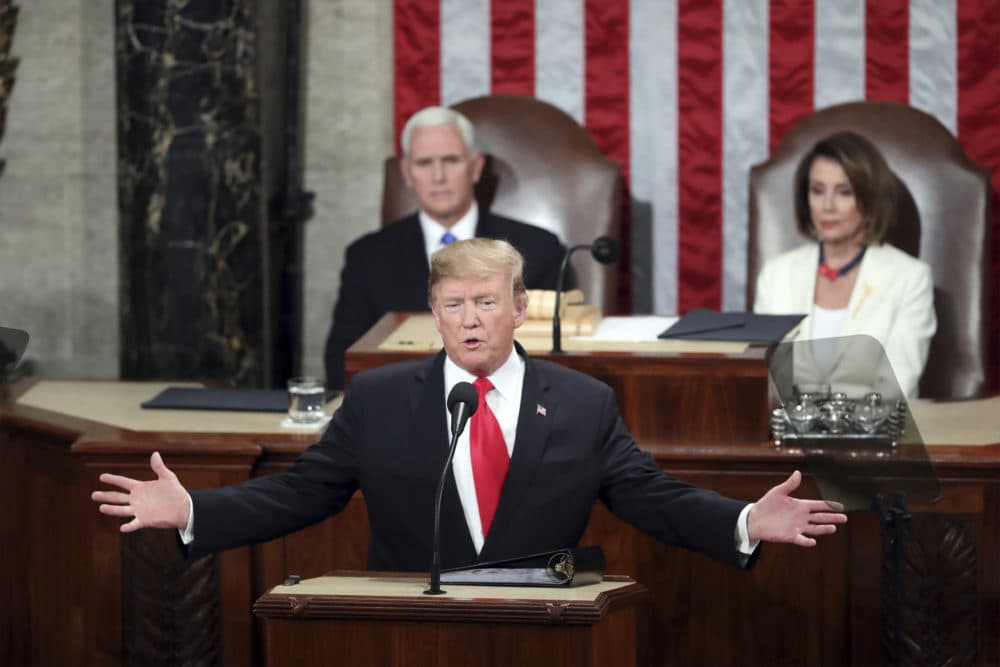Advertisement
Mass. Biotechs Have Much At Stake, As Trump Calls Drug Prices A 'Major Priority'
Resume
President Trump grabbed the attention of Massachusetts pharmaceutical companies when he called drug prices a "major priority" during his State of the Union address Tuesday. The companies are already facing pressure from Gov. Charlie Baker.
Drawing applause even from Democrats, Trump ripped what he called an "unfair" drug pricing system. He called for action from Congress to make medications that are cheaper in other countries available to Americans at lower rates.
"We should also require drug companies, insurance companies and hospitals to disclose real prices to foster competition and bring costs way down," the president said.
Among those listening to the speech was Bob Coughlin, chief executive of the Massachusetts Biotechnology Council, which includes many of the state's pharmaceutical companies.
"We weren't surprised that the president talked about drug pricing," said Coughlin. "This is obviously an issue that's a hot topic for both Republicans and Democrats."
A hot topic — and a sensitive one, for drug makers. WBUR sought interviews with a dozen local firms for this story. None agreed to speak.
But as price-control efforts go, the president's latest plan isn't so bad, from an industry perspective. It focuses on third-party businesses known as pharmacy benefit managers, or PBMs, which try to negotiate drug discounts for insurance companies. The Trump administration wants to cut out these middle men and give the discounts to patients.
"This is a fairly business-friendly way for the administration to claim a victory on prescription drug prices without actually causing a lot of pain in the pharmaceutical industry," said Boston College health economist Sam Richardson.
Like what you're reading? You can get the latest business news (and other stories Boston is talking about) sent directly to your inbox with the WBUR Today newsletter. Subscribe here.
But more pain may be necessary to make a real difference on drug prices, said Amitabh Chandra, director of health policy research at Harvard's Kennedy School of Government.
"If we really want to do something about prescription drug prices," he said, "we're going to have to have a much harder conversation around, 'Are we giving too much monopoly power — market power — to pharmaceutical companies?' "
A plan from Baker could weaken drug companies' market power. The governor wants them to negotiate with Massachusetts' Medicaid system and accept lower payments for some expensive therapies.
If companies won't take less, Baker wants to force them to justify their prices at public hearings.
Coughlin said the governor's proposal is "much more harsh" than the president's.
"If Massachusetts is the first state in the country that tries to embark upon price controls, that sends a chilling message to our own biopharma industry, right here in Massachusetts," he said. "And these are the companies that invent these new therapies."
Coughlin argued that if companies "aren't rewarded, they won't continue to invent new drugs."
This segment aired on February 5, 2019.
